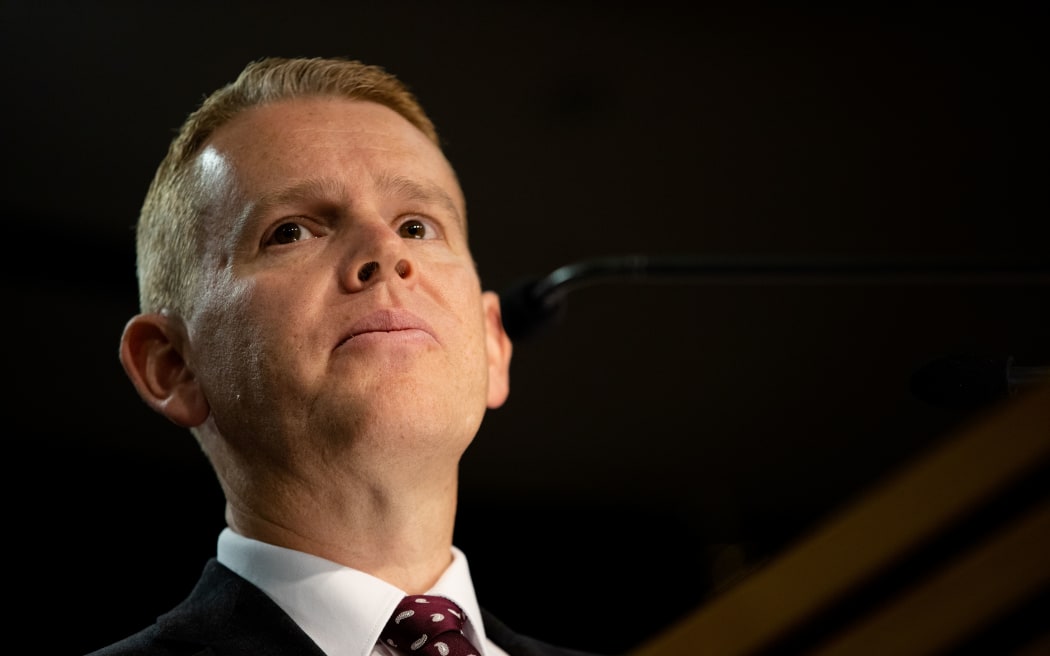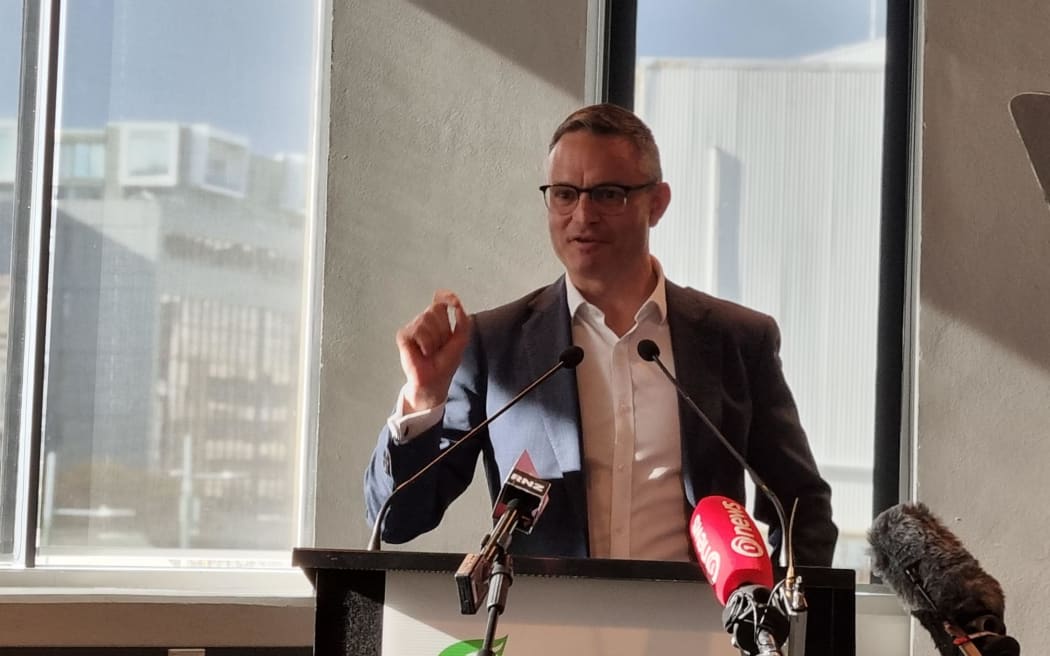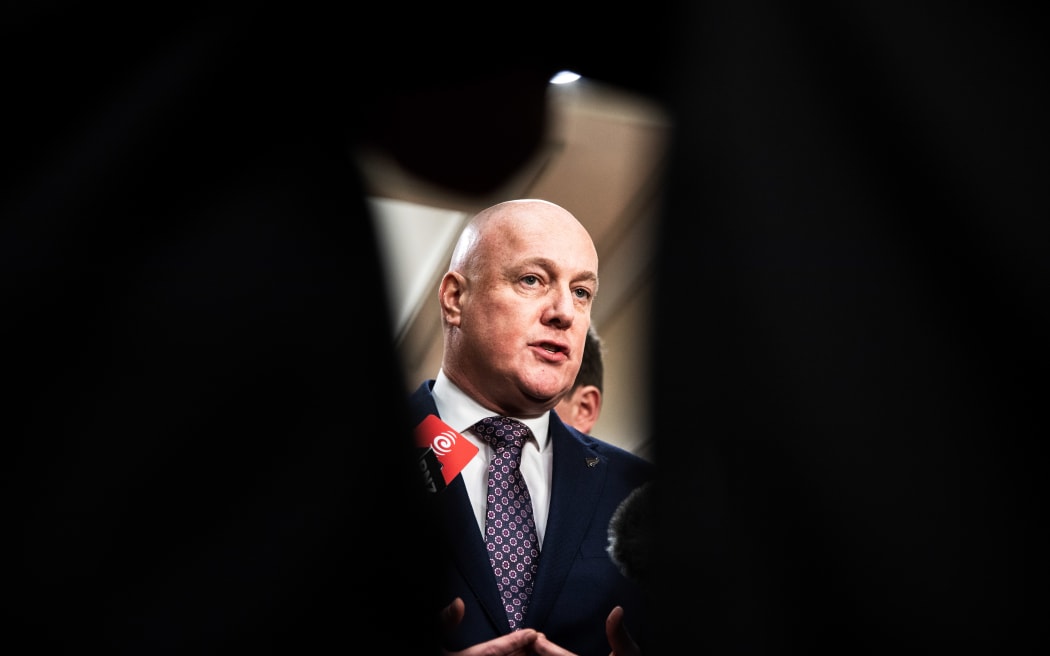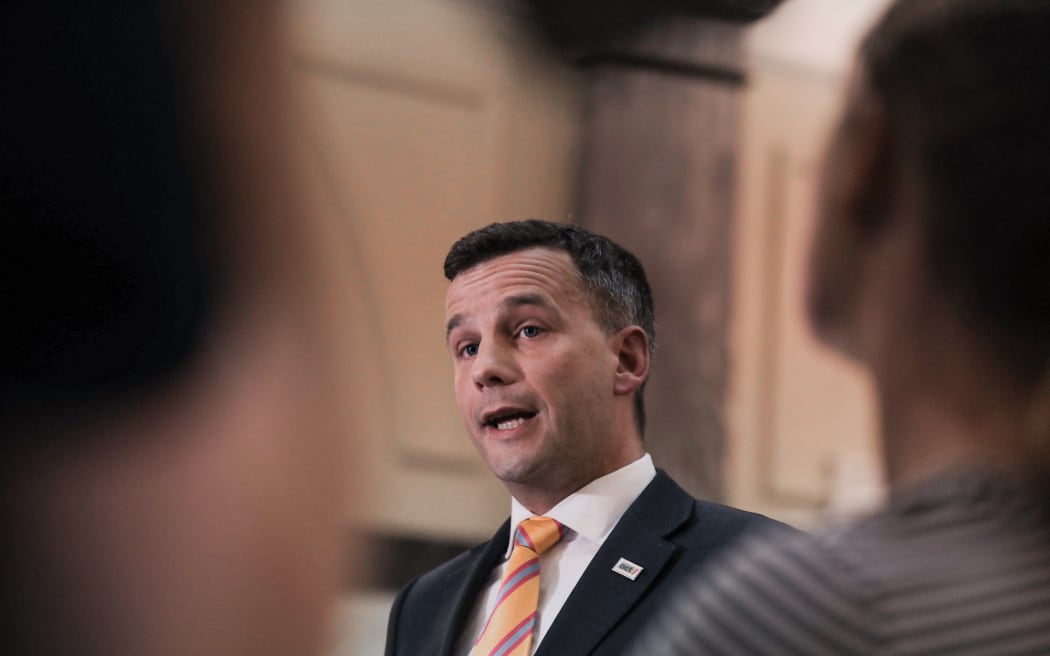Hipkins rules out capital gains tax, wealth tax if Labour re-elected

Chris Hipkins has ruled out introducing a wealth tax or capital gains tax if Labour is re-elected in October.
"I'm confirming today that under a government I lead there will be no wealth or capital gains tax after the election. End of story," Hipkins said in a statement.
Currently attending NATO in the EU, Hipkins in a statement said with many New Zealanders struggling with the cost of living it was "simply not the time" for big changes to the tax system.
"New Zealanders I talk to want certainty and continuity right now, and that's what I'm delivering with this policy," he said.
Speculation of a Labour tax policy has been rife since Hipkins became prime minister, with his predecessor Jacinda Ardern's promise not to introduce a capital gains tax during her leadership coming to an end.
That was only fuelled by Revenue Minister David Parker commissioning a study from Inland Revenue which found the wealthiest families paid less than half the amount of tax compared to other New Zealanders.
The pledge conflicts with Green Party policy - who, polling has consistently showed, Labour would need to form a government - to introduce an "income guarantee" of a tax-free bracket for all earnings under $10,000. It would be funded by a new tax bracket of 45 percent on income over $180,000, and a 2.5 percent wealth tax on assets.
Hipkins said details of Labour's tax policy would be released soon.
Hipkins also said work had been under way on experimenting with a wealth or capital gains tax as part of a tax switch in the Budget, but decided instead to only adjust the tax rate paid by trusts.
"I ultimately made the call not to proceed with [the tax switch]. We simply didn't have a mandate to implement those," he said.
Hipkins' pledge came alongside the annual release of documents relating to the Budget, which confirmed a tax switch had been looked at.
A Treasury briefing to Finance Minister Grant Robertson in March showed plans to phase in a tax-free threshold for earnings up to $7500 from 1 April 2024, rising to $10,000 the following year, but it was never progressed.
It would have been paid for with a 1.5 percent tax rate on net wealth above $5 million.
"Work was undertaken on a range of proposals for a tax switch, particularly based on a revenue-neutral switch that would have seen a tax-free zone created of up to $10,000, funded by increased tax on the wealthiest New Zealanders," Robertson said in a statement.
"This work began in 2022, but ultimately the decision was made not to go ahead with it given the significance of the change in difficult and highly uncertain economic conditions.
"We also considered a levy on the excess profits of banks in order to assist with the rebuild costs from the North Island weather events. There are many pros and cons with a proposal like this, but ultimately we did not progress this idea as there was enough space in the government accounts to manage the recovery and rebuild without it."
Officials noted that with the lower tax take expected as a result of decreased GDP, for the package to remain fiscally neutral would also have required no change to main benefits; cutting student allowance rates so they would not benefit from the tax cuts; and the removal of the up-to-$520 Independent Earner Tax Credit.
Scrapping the IETC would have meant a boost of $120m to $130m a year for the government - and was an option the previous National Party also explored ahead of the 2017 Budget.
Another document laid out how the package's start dates could also be delayed "in response to 'economic conditions'," because of the short-term risks to inflation and returning to surplus.
Greens co-leader James Shaw told reporters at Parliament he thought Hipkins was a very principled politician with a deep commitment to public services and education, but Labour had "got it wrong, and I think it's a disappointment".
"I don't think any political party leader can categorically rule out what the agenda of the next government is under MMP - that is ultimately for voters to decide.
"I don't think that there's any point in political power if you choose to do nothing with it."

He said while it would be up to the Green Party membership to vote on any coalition negotiation, there was a real possibility the Greens would not work with Labour as a result of the policy.
"So it does depend on how many MPs we've got, and it does depend on the rest of the agreement - but we have always maintained the option of just sitting on the cross-benches ... I think that there is a very real possibility of that."
He said the government had done "quite a good job" in lifting about 30,000 children above the material hardship line, but about 45,000 were still below it.
"I feel very strongly about this, and the Greens have campaigned for a progressive tax system for a very long time. We have said a number of times that poverty is a political choice.
"We're a wealthy country, we have the ability to end poverty here. And ending poverty enables us to do more things as a country as well."
In an earlier statment, he said governments had been tinkering on the edges of the tax system for too long.
"Households are struggling, our tax system has never been more unfair, and the solutions have never been clearer. The time for tinkering is over, the time for political courage is now - the only option this year is the Green Party.
"Governments have been tinkering at the edges - constrained by self-imposed refusal to tax the wealthy - instead of taking the bold decisions people need right now. If political leaders are not willing to take those decisions on behalf of the people of the country you purport to lead, then why be in politics at all?"
Hipkins attacked National's long-proposed tax cuts by as "unaffordable and inflationary".
"Just as we are getting on top of price increases, they would borrow to deliver an inflationary sugar hit. National's uncosted and unfair tax changes would deliver the biggest cuts to millionaires and CEOs while offering while offering as little as $2 a week to some low and middle income households.
"Some people might call it boring, but the times call for restraint and simple and smart policies which grow our economy, help drive inflation down and provide targeted help to those families who need it the most."
National's leader Christopher Luxon in a statement suggested Hipkins' promise was a bluff, saying Labour "simply cannot be trusted on tax".
"They ruled out the ute tax and brightline extension in 2020 and then promptly implemented them both after the election," he said.

"As National has been saying for months, Labour has been cooking up both a wealth tax and a capital gains tax - and now has cynically tried to rule them out to protect their position in the polls."
He promised National would "cut wasteful spending and get the books back in order - delivering tax reductions so the average income earner can keep almost an extra $1000 a year of their own money".
ACT leader David Seymour told RNZ the Greens and Te Pāti Māori would team up with proponents in Labour to force Hipkins to introduce a capital gains tax.
"I think the government doth protest too much - they've been asked to rule out a capital gains tax so many times, they've refused to do it until now. They've revealed they were looking into it only a few months ago.

"What we know for sure is their only path to power is dependent on ... the Māori Party and the Greens who might not even bother with taxation, they'd rather go straight to looting anybody who's got two pennies to rub together.
"Chris Hipkins is the last man standing against the capital gains tax and even he only stands there as a matter of political convenience."
If Hipkins was prime minister after the election, he would have to face down revenue and finance ministers who were in favour of a tax, his coalition partners, "and apparently his own conscience", Seymour said. Hipkins has previously expressed support for a CGT.